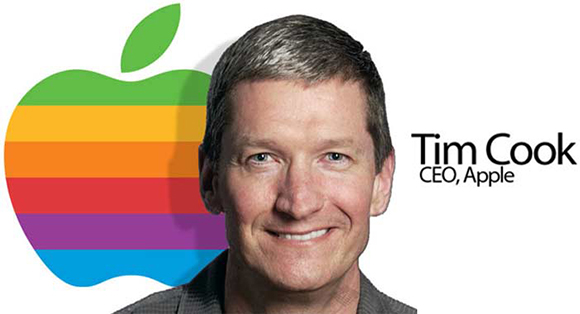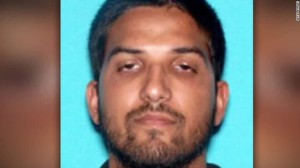
Apple could break into its iPhones in an afternoon, say experts
By Elizabeth Weise
SAN FRANCISCO — Apple could create the software needed to unlock the iPhone owned by one of the San Bernardino shooters in an afternoon, security experts estimate, but Tim Cook (in photo at top) and other tech leaders warned such software’s danger far outweighs its public benefits.
“This would be within the realm of possibility for Apple to do. It wouldn’t even be especially difficult,” said Zulfikar Ramzan, chief technology officer for RSA, one of the nation’s oldest computer security companies. The company does contract work for the Department of Justice.
“It’s trivial for them to write this code, it’s an afternoon’s worth of work. It’s just a patch to one phone and then that’s it,” said Philip Lieberman, president and CEO of Lieberman Software, a Los Angeles-based computer security firm. The company does contract work for the Department of Justice.

On Tuesday, a federal judge ordered the Cupertino, Calif. company to help the FBI with software that disables the security feature on the 5C recovered from Syed Rizwan Farook, one of the attackers in the December San Bernardino, Calif. shooting that killed 14 people.
The FBI has Farook’s iPhone, but doesn’t have the password, likely four or six digits, necessary to unlock it.
The agency believes that Farook enabled the phone’s auto-erase security measure, which would automatically erase the phone’s data after ten failed password attempts.
To get around that, the FBI asked Apple to give it a way to circumvent the auto-erase security so the agency can try millions of password combinations on Farook’s phone until it gets in, a so-called brute force attack.
That would require Apple to write a new version of the phone’s operating system to be installed on Farook’s phone that would circumvent the security features, Apple CEO Cook said in an open letter to its customers Wednesday.
The FBI can’t do it themselves because to put new software on an Apple device, it must be digitally signed with a special key that only Apple knows. Without that digital key, the phone would reject the software.
Cook said creating a new version of the software, what he called a “backdoor to the iPhone” would be “too dangerous to create.”
“In the wrong hands, this software — which does not exist today — would have the potential to unlock any iPhone in someone’s physical possession,” Cook wrote in a letter published to Apple’s website.
The White House said Wednesday it was not asking Apple to “create a new backdoor”. The FBI has said it’s seeking assistance only to unlock Farook’s phones, not all iPhones.
(To read the full report on USA Today, click here)


